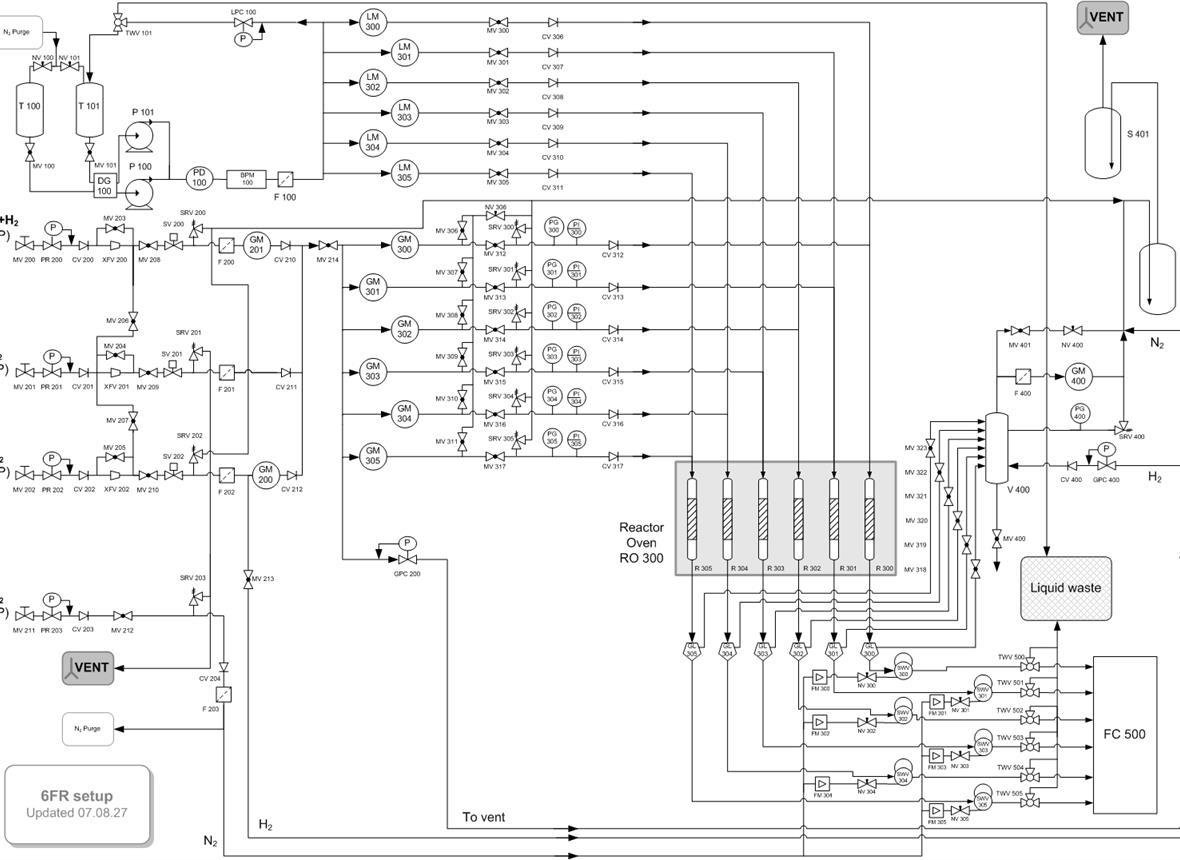
Hydrogen sulfide (H2S) is a toxic and corrosive substance that is either naturally in aqueous or gas form or can be generated by industrial processes (e.g., in the petroleum industry). Globally, H2S production (from both petroleum and natural sources) has reached 10 million tons annually, which will increase further. Using H2S sources as feedstock for H2 generation is a promising approach for eliminating H2S and producing clean energy. The thermal decomposition of H2S could be attractive from an economic standpoint. However, this process has several challenges, including thermodynamic limitations (high operating temperature, equilibrium limitation, and low conversion rate). Catalytic decomposition of H2S for H2 generation has drawn significant attention as an alternative process for H2 generation at lower operated temperatures.
We aim to develop, synthesize, characterize, and test innovative catalysts with promoted lifetime, activity, and selectivity for H2 generation via the thermo-catalytic decomposition of hydrogen sulfide (H2S).